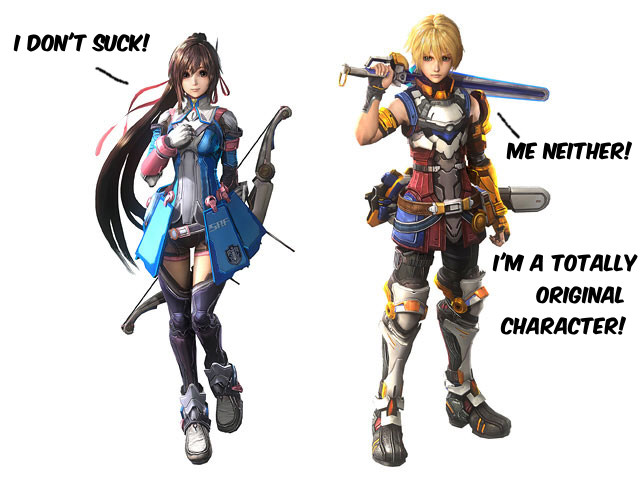Fall of the Rising Sun
By Reuptake 16 Comments

The Japanese had a pretty solid lock on the video game industry in the 80s and 90s, both in terms of hardware and publishing. Hell, it wasn't until the original Xbox that a viable Western console even existed, and over the past fifteen years or so, the market has expanded to the point where being known to dabble in video games doesn't carry the same stigma it used to. As the industry changed, and as gamers grew older, their tastes tended to change as well. What used to entertain and pass as high storytelling failed to be quite as satisfying as time went on, and the pimply-faced gamers of yesterday became the college graduates and working professionals of today. And yet the Japanese, the culture that started it all, has been the one part of the industry most resistant to change. I remember being dazzled by the graphics and effects of Final Fantasy VII, a title that's heralded as one of the industry's best to this day - but as time passed, and the ironically titled Final Fantasy games kept plodding forward, I noticed some trends that troubled me.
Many Japanese games are all about flash, style over substance, and oozing globs of melodrama. This trend extends far beyond the Final Fantasy series; just look at Resident Evil, Devil May Cry, Lost Odyssey and the Metal Gear Solid series among others. Usually the characters in these games are two-dimensional with motives that are indecipherable at best, and the titles themselves often seem to be more of an excuse for programmers and storyboard writers to show how good they are at producing cutscenes than compelling game play. I wrote about some of these issues in my review of Metal Gear Solid 4, but I didn't really start to ponder it as a whole until recently.
Obviously Japan is a radically different culture from the United States in many respects, and what flies for entertainment over here may very well fall flat on its face in Kyoto, but the fact remains: I used to love playing these games. So what happened? I grew up. I still play video games nearly every day, though in much smaller doses than before. I enjoy the deep storytelling and atmosphere of Bioshock, the brooding isolation and terror of Penumbra, the visceral battlefield experience of Dawn of War 2, and the mindless but compelling action of Halo. And these are just titles that I can think of off the top of my head that I've enjoyed over the past few years. Noticeably absent, however, is a single JRPG title, or more to the point, any title from Japan recently. Final Fantasy, the series I once adored, is now all about simplistic characters - or rather caricatures of characters, in increasingly complex and convoluted plots that are incredibly difficult to follow, abstract, and leave you wondering why you should care about the plight of any of the protagonists at all. If I was still 14, maybe I would find these games compelling. But alas, I am not. Perhaps I will return to the Japanese gaming industry when it grows up too.
